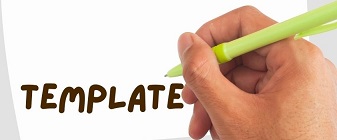Consumptive Behavior of Students: Analysis of Herbert Marcuse's Perspective
(1) Universitas Negeri Makassar
(2) Universitas Negeri Makassar
(3) Universitas Pejuang Republik Indonesia
(4) Universitas Negeri Makassar
(*) Corresponding Author
DOI: https://doi.org/10.26858/ja.v10i2.58745
Abstract
Keywords
Full Text:
PDFReferences
Arhas, S. H., Khatami, A., Zulfikar, M., & Tenri Awaru, A. O. (2022). Effectiveness of Spatial Management of the One-Stop Integrated Service Section at the Makassar State Administrative Court. Jurnal Office: Jurnal Pemikiran Ilmiah Dan Pendidikan Administrasi Perkantoran, 8(1), 89–96.
Arhas, S. H., Suprianto, S., Saleh, S., Niswaty, R., & Jamaluddin, J. (2022). Analysis of Student Morality and Learning Achievement at Universitas Negeri Makassar. ATLANTIS PRESS Proceedings of the 1st World Conference on Social and Humanities Research (W-SHARE 2021), 654, 320–324.
Barry, P. (2020). Post-structuralism and deconstruction. In Beginning theory (fourth edition) (pp. 61–82). Manchester University Press.
Darwis, M., Rivai, A. M., Arhas, S. H., & Purna, Z. A. (2023). School-Based Management From the Viewpoint of the Principal’s Leadership (Study at State Vocational School 1 Bone). Technium Social Sciences Journal, 50, 503–508.
Hanson, J. D., Nothwehr, F., Yang, J. G., & Romitti, P. (2015). Indirect and Direct Perceived Behavioral Control and the Role of Intention in the Context of Birth Control Behavior. Maternal and Child Health Journal, 19(7), 1535–1542. https://doi.org/10.1007/s10995-014-1658-x
Haryono, B. (2020). The Utilization of Information Technology Application, Lazy-Ass Culture, Sedentary Lifestyle, and Consumptive Behavior of Villagers. International Journal of Education and Social
Ma, Y., Qiao, J., & Han, D. (2020). Interpreting the humanistic space of urban-rural interface using consumption behaviors. Journal of Rural Studies. https://doi.org/https://doi.org/10.1016/j.jrurstud.2019.12.014
Mesra, R. (2023). Pengantar Sosiologi Umum (menelusuri Kajian-kajian Sosiologi).
Miles, M. B., & Huberman, A. M. (1994). Miles and Huberman 1994.pdf. In Qualitative Data Analysis: An Expanded Sourcebook.
Nasdian, F. T. (2015). Sosiologi umum. Yayasan Pustaka Obor Indonesia.
Niswaty, R. (2014). Manajemen Keluhan Pelanggan (Complain Management) Pada Pemberian Layanan Publik Di Kota Makassar.
Priananda, A. T., & Harwanti, N. (2020). Lifestyle Relationship and Conformity With Consumptive Behavior in Adolescents in Banyuwangi City Province of East Java. Sosioedukasi Jurnal Ilmiah Ilmu Pendidikan Dan Sosial, 9(1), 1–9.
Rahmat, P. S. (2021). Psikologi pendidikan. Bumi Aksara.
Salkind, N. J. (2019). Teori-Teori Perkembangan Manusia: Sejarah Kemunculan, Konsepsi Dasar, dan Contoh Aplikasi. Nusamedia.
Sarup, M. (1993). An introductory guide to post-structuralism and postmodernism. Pearson Education.
Saumantri, T. (2022). Konsumerisme Masyarakat Kontemporer menurut Herbert Marcuse. Media: Jurnal Filsafat Dan Teologi, 3(2), 162–177.
Setiawan, A. B. (2019). Perilaku Konsumtif Mahasiswa Analisis Perspektif Herbert Marcuse. IAIN SALATIGA.
Sugiyono. (2015). Sugiyono, Metode Penelitian dan Pengembangan Pendekatan Kualitatif, Kuantitatif, dan R&D , (Bandung: Alfabeta, 2015), 407 1. Metode Penelitian Dan Pengembangan Pendekatan Kualitatif, Kuantitatif, Dan R&D.
Suyanto, B., Sugihartati, R., Syamsiyah, N., & Savira, P. S. (2023). Memahami Teori Post-Strukturalisme. Airlangga University Press.
Waluya, B. (2007). Sosiologi: Menyelami fenomena sosial di masyarakat. PT Grafindo Media Pratama.
Wang, K., & Zhang, X. (2021). The effect of media coverage on disciplining firms’ pollution behaviors: Evidence from Chinese heavy polluting listed companies. Journal of Cleaner Production, 280, 123035. https://doi.org/https://doi.org/10.1016/j.jclepro.2020.123035
Zahra, D. R., & Anoraga, P. (2021). The influence of lifestyle, financial literacy, and social demographics on consumptive behavior. The Journal of Asian Finance, Economics and Business, 8(2), 1033–1041.
Article Metrics
Abstract view : 89 times | PDF view : 19 timesRefbacks
- There are currently no refbacks.
Copyright (c) 2023 Nurlela Nurlela, Syamsu A Kamaruddin, Syamsu A Kamaruddin, Arlin Adam, Arlin Adam, Jumadi Jumadi, Jumadi Jumadi

This work is licensed under a Creative Commons Attribution 4.0 International License.






























 under a
under a